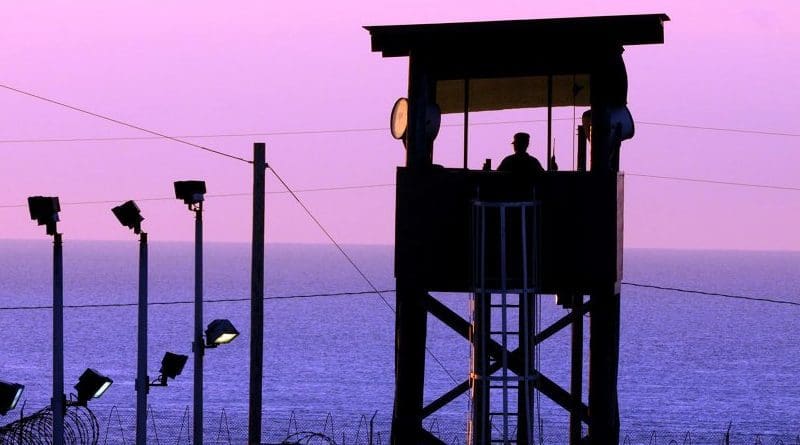As Guantánamo Turns 20, All Biden Needs To Shut It Down Is Political Will – OpEd
By The Center for Constitutional Rights
Today, on the eve of 20th anniversary of the arrival of the first men detained in the so-called war on terror in the U.S. prison at Guantánamo Bay, Cuba, the Center for Constitutional Rights issued the following statement:
For 20 years, this monstrous creation of the U.S. government has been intentionally inflicting human suffering. Today, we think of the victims: the 780 Muslim men and boys who have faced injustice and brutality, from torture to indefinite detention to sham trials to force feeding to profound indifference, if not hostility, from U.S. political leaders. We also think of the families who have been without their loved ones for so long and do not know when or if they will see them again. In the name of our clients still there, we call on President Biden to fulfill his pledge to shut it down. He has the authority and the capacity to do so; all he needs now is the will.
Thirty-nine men remain in the prison. Twenty-seven have not been charged. Twenty-six are survivors of CIA torture. Five are our clients:
- Sufyian Barhoumi, an Algerian, has been held at Guantánamo since June 2002. He was cleared for transfer in 2016 by the Obama administration, which failed to transfer him before Trump took office.
- Sharqawi Al Hajj, a Yemeni, has been held without charge since 2004, after enduring torture at two CIA black sites. His torture has contributed to health problems so severe a doctor warned of “total bodily collapse.” He was approved for transfer by the Biden administration in June 2021.
- Mohammed Al Qahtani, a Saudi citizen, was rendered to Guantánamo and tortured in February 2002. Years earlier, he had been diagnosed with schizophrenia, and his mental health is deteriorating rapidly. He is not charged with a crime.
- Guled Hassan Duran is a Somali citizen captured in March 2004 and rendered to the CIA, which denied him medical care to try to force him to cooperate. He has been detained without charge at Guantánamo since September 2006.
- Majid Khan, a Pakistani citizen who grew up in the United States, is eligible for release in February 2022 pursuant to a plea agreement with the U.S. Held at Guantánamo since 2006, he recently became the first survivor of the CIA torture program to discuss in public his experiences at black sites.
The prison should never have been opened, and there has never been a good reason to keep it open, save for the politics of fear, domination and impunity. We must look at Guantánamo with renewed urgency: the world has changed since 2002 – and since 2020. The U.S. war in Afghanistan has ended, making the bad legal argument for detaining people at Guantánamo even worse: even the unfounded and unconstitutional justifications upon which the U.S. government launched its “war on terror” no longer exist. Last year, to mark the 19th anniversary of the opening of the prison, more than a hundred non-governmental organizations joined a letter urging President Biden to close the prison and end indefinite military detention. And just last month, the Senate held a bi-partisan hearing on closing Guantánamo.
Still, despite political and public agreement that we must immediately end this injustice, President Biden has only transferred one man out of the island prison in his entire first year of office. After withdrawing from Afghanistan, he claimed to have ended the “forever war,” but the ideology and infrastructure of that war will persist as long as its primary prison camp and torture chamber remains open, we continue to hold people indefinitely and without charge or fair trial, and there is no redress for victims of the U.S. torture program or accountability for those responsible for it. Guantánamo was unjust and illegitimate on January 11, 2002. It is unjust and illegitimate today. We have been there from the beginning, fighting to shut it down, and we will be there at the end.
*The Center for Constitutional Rights works with communities under threat to fight for justice and liberation through litigation, advocacy, and strategic communications. Since 1966, the Center for Constitutional Rights has taken on oppressive systems of power, including structural racism, gender oppression, economic inequity, and governmental overreach. Learn more at ccrjustice.org.

